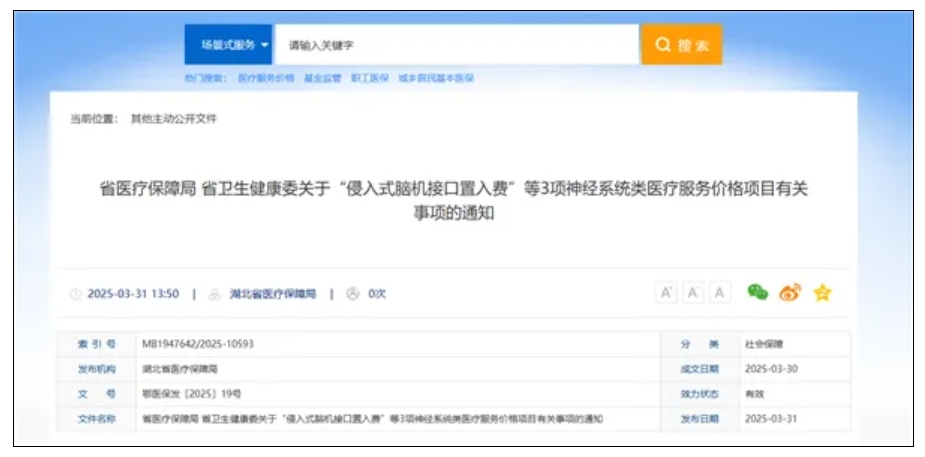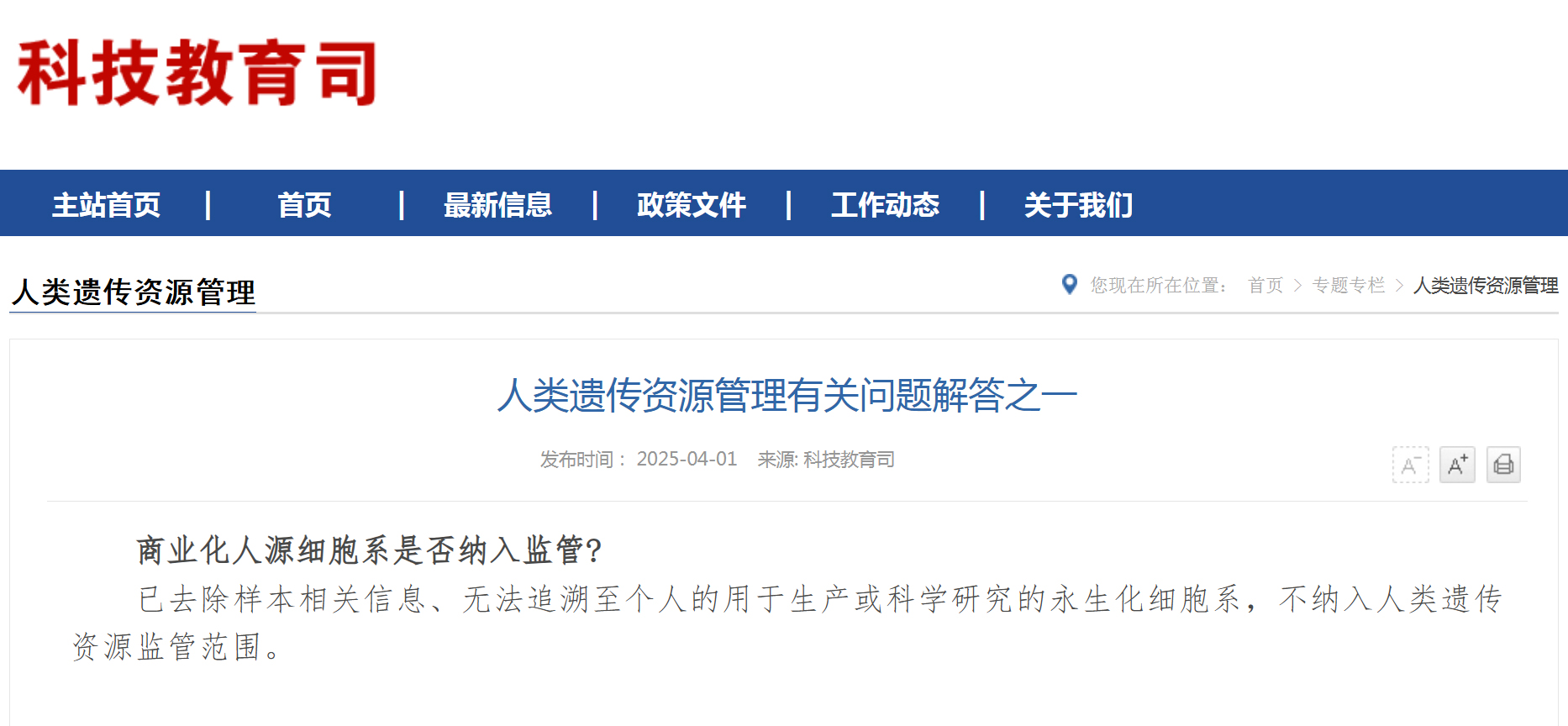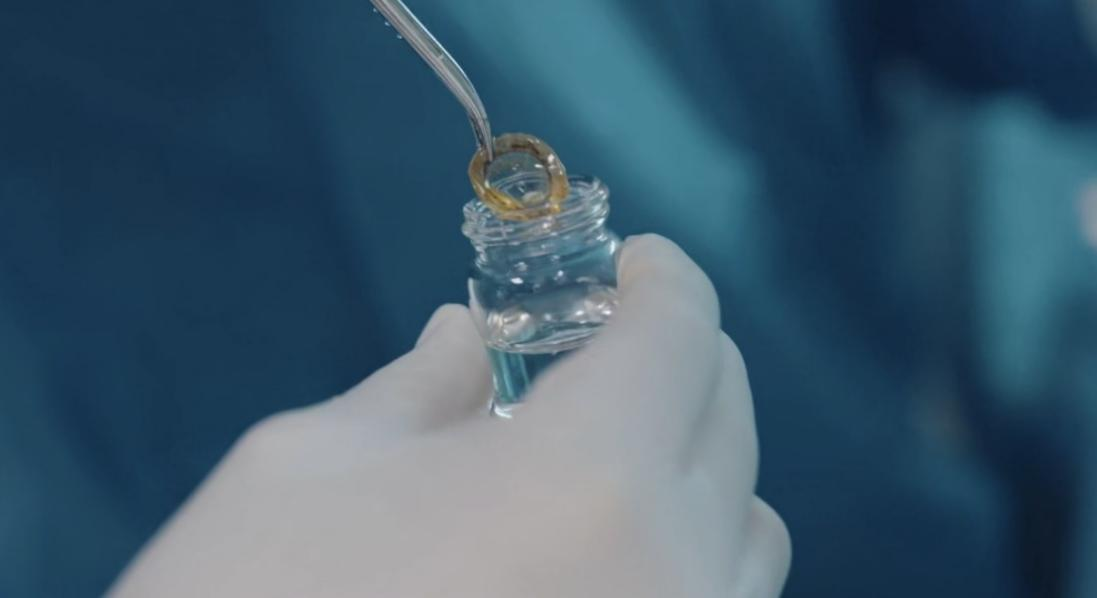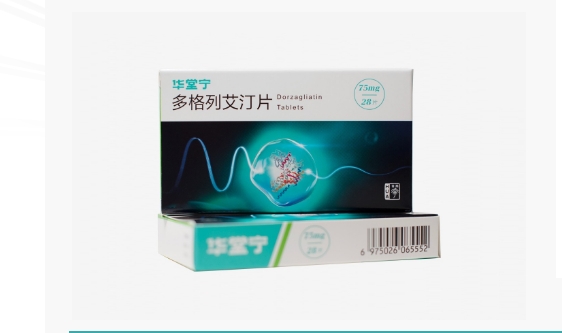诺华(Novartis)4月29日宣布,抗癌药Zykadia(ceritinib)获FDA批准,用于经Xalkori(crizotinib)治疗后病情恶化或对Xalkori不耐受的间变性淋巴瘤激酶阳性(ALK+)转移性非小细胞肺癌(NSCLC)患者的治疗。此前,FDA已授予Zykadia突破性疗法认定。
对于启动Xalkori初步治疗后病情复发的ALK+NSCLC患者群体,Zykadia将是一个重要的治疗选择,将解决这一群体中未获满足的医疗需求。
Zykadi的获批,是基于一项关键临床试验的数据。该试验在163例经Xalkori治疗后病情恶化或对Xalkori不耐受的ALK+NSCLC患者中开展。该研究群体中,肿瘤转移的最常见部位为脑(60%)、肝脏(42%)、骨骼(42%)。研究数据表明,Zykadia治疗取得了54.6%的总响应率(ORR),平均响应持续时间为7.4个月。
肺癌是导致癌症死亡的主要原因之一。非小细胞肺癌(NSCLC)占到了肺癌病例的85%-90%,其中2%-7%病例由ALK基因的重排(rearrangement)所驱动,导致癌细胞的加速生长。尽管ALK+NSCLC群体的临床治疗已取得显着进展,但病情恶化往往是不可避免的,因此需要更多的治疗选择。
关于Zykadia(ceritinib):
Zykadia是一种口服、选择性间变性淋巴瘤激酶(ALK)抑制剂。在肺癌的临床治疗中,ALK是一个重要的治疗靶标。ALK基因能够与其他基因融合,表达一种异常的融合蛋白,促进癌细胞的形成和生长。FDA于2013年3月授予Zykadia突破性疗法认定。
关于Xalkori(crizotinib):
Xalkori是一种变性淋巴瘤激酶(ALK)抑制剂,于2011年获FDA加速批准,并于2013年获FDA正式批准,用于经FDA批准的一款检测试剂盒证实其肿瘤为间变性淋巴瘤激酶(ALK)阳性的转移性非小细胞肺癌(NSCLC)患者的治疗。
Xalkori是首个对间变性淋巴瘤激酶(ALK)进行靶向治疗的药物。目前,该药已获全球60多个国家批准,包括美国、欧盟、加拿大、中国、韩国、日本、澳大利亚。Xalkori的上市,已极大地改变了晚期ALK+NSCLC患者的临床治疗。(生物谷Bioon.com)
英文原文:Novartis gains FDA approval for Zykadia(TM), first therapy for patients with ALK+ NSCLC previously treated with the ALK inhibitor crizotinib
-Zykadia (ceritinib) demonstrated an overall response rate of 54.6% in patients with ALK+ metastatic NSCLC who have no other treatment option[1]
-Median duration of response to Zykadia was 7.4 months; patients in study started treatment with metastases, including brain (60%), liver (42%) and bone (42%)[1]
-ALK+ NSCLC is driven by a rearrangement of the ALK gene, which is responsible for cancer cell growth in 2-7% of patients with NSCLC[2]
-Approval follows FDA Breakthrough Therapy designation; regulatory application submitted in the EU and filings underway with other health authorities worldwide
Basel, April 29, 2014 - Novartis announced today that the US Food and Drug Administration (FDA) has approved Zykadia(TM) (ceritinib, previously known as LDK378) for the treatment of patients with anaplastic lymphoma kinase-positive (ALK+) metastatic non-small cell lung cancer (NSCLC) who have progressed on or are intolerant to crizotinib[1]. The approval of Zykadia addresses an unmet medical need for patients with this type of lung cancer who have progressed on prior therapy.
“Zykadia represents an important treatment option for ALK+ NSCLC patients who relapse after starting initial therapy with crizotinib,” said lead investigator Alice T. Shaw, MD, PhD, Massachusetts General Hospital Cancer Center, Boston. “This approval will affect the way we manage and monitor patients with this type of lung cancer, as we will now be able to offer them the opportunity for continued treatment response with a new ALK inhibitor.”
Lung cancer is the leading cause of cancer death worldwide. The most common type of lung cancer is NSCLC, accounting for 85-90% of all cases[3]. Of those, 2-7% are driven by a rearrangement of the ALK gene, which increases the growth of cancer cells and can be identified by a molecular test of the cancer tumor[2]. Despite significant treatment advances for patients with ALK+ NSCLC, disease progression is often inevitable and more options are needed.
The approval of Zykadia is based on a pivotal trial that included 163 patients with metastatic ALK+ NSCLC who progressed on or were intolerant to treatment with crizotinib. The most common sites of metastases in the patient population studied were brain (60%), liver (42%) and bone (42%)[1].
Among previously-treated patients, Zykadia achieved an overall response rate (ORR) of 54.6% [95% CI, 47-62%] and a median duration of response (DOR) of 7.4 months [95% CI, 5.4-10.1 months][1]. The most common adverse reactions (incidence of at least 25%) were diarrhea, nausea, elevated transaminases, vomiting, abdominal pain, fatigue, decreased appetite and constipation[1].
“The approval of Zykadia less than three and a half years after the first patient entered our clinical trial exemplifies what is possible with a highly focused approach to drug development and strong collaboration,” said Alessandro Riva, MD, President, Novartis Oncology ad interim and Global Head, Oncology Development and Medical Affairs. “The dedication of clinical investigators, patients, the FDA and others has enabled us to bring this medicine to patients in need as swiftly as possible.”
Zykadia is an oral, selective inhibitor of ALK, an important therapeutic target in lung cancer. ALK is a gene that can fuse with other genes to form an aberrant “fusion protein” that promotes the development and growth of cancer cells[4],[5]. Zykadia is one of the first medicines to be approved following FDA Breakthrough Therapy designation, which was received in March 2013 due to the significance of results observed in the pivotal trial and the serious and life-threatening nature of ALK+ NSCLC. Additional regulatory submissions for Zykadia are underway worldwide, with an application currently filed in the European Union.
About the pivotal trial and Zykadia clinical trial program
The efficacy of Zykadia was established in a multicenter, single-arm, open-label clinical trial. A total of 163 patients with metastatic ALK+ NSCLC who progressed on or were intolerant to treatment with crizotinib were enrolled and treated at a Zykadia dose of 750 mg once daily. The major efficacy outcome measure was ORR according to RECIST v1.0 as evaluated by both investigators and a Blinded Independent Central Review Committee (BIRC)。 DOR was an additional outcome measure[1].
The study population characteristics were: median age 52 years, age less than 65 (87%), female (54%), Caucasian (66%), Asian (29%), never or former smoker (97%), ECOG PS 0 or 1 (87%), progression on previous crizotinib (91%), number of prior therapies 2 or more (84%), and adenocarcinoma histology (93%)。 Sites of extra-thoracic metastasis included brain (60%), liver (42%) and bone (42%)。 ALK-positivity was verified retrospectively by review of local test results for 99% of patients[1].
Zykadia achieved an ORR of 54.6% [95% CI, 47-62%] and a median DOR of 7.4 months [95% CI, 5.4-10.1 months] based on investigator assessment. The analysis by the BIRC assessment was similar to the analysis by the investigator assessment with an ORR of 43.6% [95% CI, 36-52%] and a median DOR of 7.1 months [95% CI, 5.6-NE months][1].
This study is part of the ongoing Novartis clinical trial program in this patient population. Several major studies evaluating treatment with ceritinib are being conducted in more than 300 study centers across more than 30 countries. Two Phase II single-arm clinical trials in previously-treated and treatment-na?ve ALK+ NSCLC patients, (www.clinicaltrials.gov identifiers NCT01685060 and NCT01685138), are fully enrolled and ongoing. In addition, two Phase III clinical trials comparing ceritinib with chemotherapy in treatment-na?ve and in previously-treated patients, (www.clinicaltrials.gov identifiers NCT01828099 and NCT01828112), are ongoing and actively recruiting patients worldwide[6],[7],[8],[9].
About Zykadia
Zykadia (ceritinib) is indicated for the treatment of patients with ALK+ metastatic NSCLC who have progressed on or are intolerant to crizotinib. This indication is approved under accelerated approval based on tumor response rate and duration of response. An improvement in survival or disease-related symptoms has not been established. Continued approval for this indication may be contingent upon verification and description of clinical benefit in confirmatory trials.
Zykadia Important Safety Information
Diarrhea, nausea, vomiting, or abdominal pain occurred in 96% of 255 patients including severe cases in 14% of patients treated with Zykadia in Study 1. Dose modification due to diarrhea, nausea, vomiting, or abdominal pain occurred in 38% of patients. Patients should be monitored and managed using standards of care, including anti-diarrheals, anti-emetics, or fluid replacement, as indicated. Based on the severity of the adverse drug reaction, withhold Zykadia with resumption at a reduced dose as described in Table 1 of the package insert.
Drug-induced hepatotoxicity occurred in patients treated with Zykadia. Elevations in alanine aminotransferase (ALT) greater than 5 times the upper limit of normal (ULN) occurred in 27% of 255 patients in Study 1. One patient (0.4%) required permanent discontinuation due to elevated transaminases and jaundice. Patients should be monitored with liver laboratory tests including ALT, aspartate aminotransferase (AST), and total bilirubin once a month and as clinically indicated, with more frequent testing in patients who develop transaminase elevations. Based on the severity of the adverse drug reaction, withhold Zykadia with resumption at a reduced dose, or permanently discontinue Zykadia as described in Table 1 of the package insert.
Severe, life-threatening, or fatal interstitial lung disease (ILD)/pneumonitis can occur in patients treated with Zykadia. In Study 1, pneumonitis was reported in 4% of 255 patients treated with Zykadia. CTCAE Grade 3 or 4 ILD/pneumonitis was reported in 3% of patients, and fatal ILD/pneumonitis was reported in 1 patient (0.4%) in Study 1. One percent (1%) of patients discontinued Zykadia in Study 1 due to ILD/pneumonitis. Patients should be monitored for pulmonary symptoms indicative of ILD/pneumonitis. Exclude other potential causes of ILD/pneumonitis, and permanently discontinue Zykadia in patients diagnosed with treatment-related ILD/pneumonitis.
QTc interval prolongation occurs in patients treated with Zykadia. Three percent (3%) of 255 patients experienced a QTc interval increase over baseline greater than 60 msec in Study 1. Across the development program of Zykadia, one of 304 patients (less than 1%) treated with Zykadia doses ranging from 50 to 750 mg was found to have a QTc greater than 500 msec and 3% of patients had an increase from baseline QTc greater than 60 msec. A pharmacokinetic analysis suggested that Zykadia causes concentration-dependent increases in the QTc interval. When possible, avoid use of Zykadia in patients with congenital long QT syndrome. Conduct periodic monitoring with electrocardiograms (ECGs) and electrolytes in patients with congestive heart failure, bradyarrhythmias, electrolyte abnormalities, or those who are taking medications that are known to prolong the QTc interval. Withhold Zykadia in patients who develop a QTc interval greater than 500 msec on at least 2 separate ECGs until the QTc interval is less than 481 msec or recovery to baseline if the QTc interval is greater than or equal to 481 msec, then resume Zykadia at a reduced dose as described in Table 1 of the package insert. Permanently discontinue Zykadia in patients who develop QTc interval prolongation in combination with Torsade de pointes or polymorphic ventricular tachycardia or signs/symptoms of serious arrhythmia.
Hyperglycemia can occur in patients receiving Zykadia. In Study 1, CTCAE Grade 3-4 hyperglycemia, based on laboratory values, occurred in 13% of 255 patients. There was a 6-fold increase in the risk of CTCAE Grade 3-4 hyperglycemia in patients with diabetes or glucose intolerance and a 2-fold increase in patients taking corticosteroids. Monitor serum glucose levels as clinically indicated. Initiate or optimize anti-hyperglycemic medications as indicated. Based on the severity of the adverse drug reaction, withhold Zykadia until hyperglycemia is adequately controlled, then resume Zykadia at a reduced dose as described in Table 1 of the package insert. If adequate hyperglycemic control cannot be achieved with optimal medical management, permanently discontinue Zykadia.
Bradycardia can occur in patients receiving Zykadia. In Study 1, sinus bradycardia, defined as a heart rate of less than 50 beats per minute, was noted as a new finding in 1% of 255 patients. Bradycardia was reported as an adverse drug reaction in 3% of patients in Study 1. Avoid using Zykadia in combination with other agents known to cause bradycardia (e.g., beta-blockers, non-dihydropyridine calcium channel blockers, clonidine, and digoxin) to the extent possible. Monitor heart rate and blood pressure regularly. In cases of symptomatic bradycardia that is not life-threatening, withhold Zykadia until recovery to asymptomatic bradycardia or to a heart rate of 60 bpm or above, evaluate the use of concomitant medications, and adjust the dose of Zykadia. Permanently discontinue Zykadia for life-threatening bradycardia if no contributing concomitant medication is identified; however, if associated with a concomitant medication known to cause bradycardia or hypotension, withhold Zykadia until recovery to asymptomatic bradycardia or to a heart rate of 60 bpm or above, and if the concomitant medication can be adjusted or discontinued, resume Zykadia at a reduced dose as described in Table 1 of the package insert upon recovery to asymptomatic bradycardia or to a heart rate of 60 bpm or above, with frequent monitoring.
Based on its mechanism of action, Zykadia may cause fetal harm when administered to a pregnant woman. In animal studies, administration of ceritinib to rats and rabbits during organogenesis at maternal plasma exposures below the recommended human dose of 750 mg daily caused increases in skeletal anomalies in rats and rabbits. Apprise women of reproductive potential of the potential hazard to a fetus. Advise females of reproductive potential to use effective contraception during treatment with Zykadia and for at least 2 weeks following completion of therapy.
The most common adverse reactions (incidence of at least 25%) are diarrhea (86%), nausea (80%), vomiting (60%), abdominal pain (54%), fatigue (52%), decreased appetite (34%), and constipation (29%)。 Key laboratory abnormalities (incidence of at least 25%) were decreased hemoglobin (84%), increased alanine transaminase (80%), increased aspartate transaminase (75%), increased creatinine (58%), increased glucose (49%), decreased phosphate (36%), and increased lipase (28%)。
Avoid concurrent use of Zykadia with strong CYP3A inhibitors and strong CYP3A inducers. If concurrent use of a strong CYP3A inhibitor is unavoidable, reduce the dose of Zykadia by approximately one-third. Avoid concurrent use of Zykadia with CYP3A and CYP2C9 substrates with narrow therapeutic indices. Patients should not consume grapefruit and grapefruit juice during treatment with Zykadia. Patients should be instructed to take Zykadia on an empty stomach (i.e., do not take within 2 hours of a meal)。
Please see full Prescribing Information for Zykadia.
Outside of the US, Zykadia (LDK378) is an investigational agent and has not been approved by regulatory authorities.
来源:生物谷
为你推荐
 资讯
资讯 悦唯医疗完成近亿元A++轮投资,加速重症冠心病诊疗全流程创新器械研发与国产替代
此次融资将主要用于深化冠心病诊疗全流程创新器械和脉动式左心室辅助系统等新产品的研发,以及加速已获准上市的心脏稳定器等产品的市场推广。
2025-04-03 09:28
 资讯
资讯 海尔盈康一生启动孤独症儿童关爱行动,创新罕见病可持续公益新生态
本次活动聚焦孤独症儿童的诊疗,探讨交流AI赋能全流程防治康体系创新、前沿性生物科技诊疗技术等话题,旨在通过生态联盟的力量推动医学研究、科技创新与人文关怀的融合,让“星...
2025-04-03 09:11
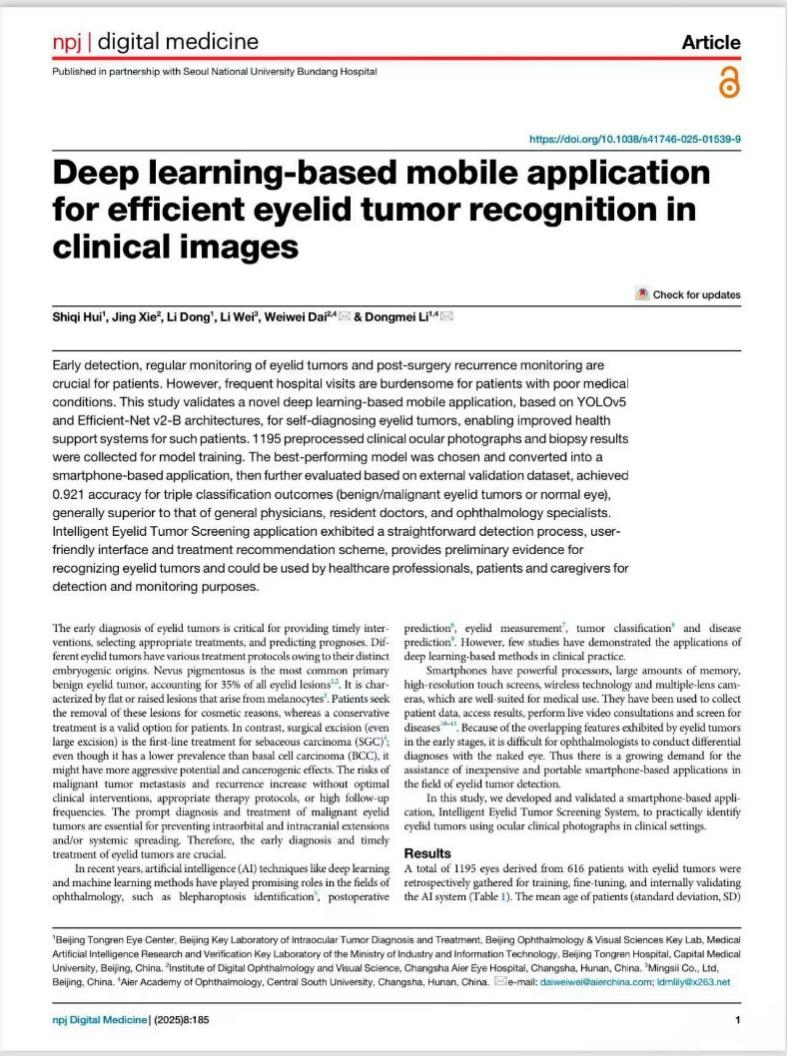 资讯
资讯 《NPJ digital medicine》刊发李冬梅教授团队成果:AI赋能高效识别眼睑肿物
亚太眼整形外科学会主席、中华医学会眼科分会眼整形眼眶病学组副组长李冬梅教授团队携手爱尔数字眼科研究所,在《NPJ digital medicine》(影响因子:12 4)学术期刊发表团队...
文/李林 2025-04-02 10:27
 资讯
资讯 默克全球执行副总裁周虹:合作与创新是默克未来五年战略的两大关键词
近日,德国默克医药健康全球执行副总裁、中国及国际市场负责人周虹带领医药健康中国及国际市场管理团队开启了2025年度首次“中国行”。
2025-04-01 17:11
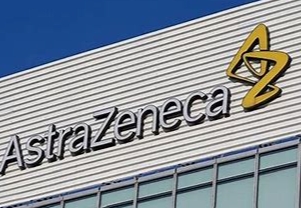 资讯
资讯 首个且唯一,阿斯利康PD-L1单抗获FDA批准治疗肌层浸润性膀胱癌
度伐利尤单抗联合吉西他滨和顺铂作为新辅助治疗,随后度伐利尤单抗作为根治性膀胱切除术后的辅助单药治疗,用于治疗肌层浸润性膀胱癌成年患者。
2025-04-01 14:37
 资讯
资讯 全国首个,湖北为脑机接口医疗服务定价
昨日(3月31日),据“湖北发布”消息,湖北省医保局发布全国首个脑机接口医疗服务价格,其中,侵入式脑机接口置入费6552元 次,侵入式脑机接口取出费3139元 次,非侵入式脑机...
2025-04-01 11:03
 资讯
资讯 一款国产创新流感药,获批
近日,据国家药监局官网信息显示,青峰医药下属子公司江西科睿药自主研发的1类创新药玛舒拉沙韦片(商品名:伊速达)正式获批上市,用于既往健康的12岁及以上青少年和成人单纯性...
2025-04-01 10:22
 资讯
资讯 26省联盟药品集采启动,聚焦妇科用药和造影剂
近日,山西省药械集中招标采购中心发布《关于做好二十六省联盟药品集中带量采购品种数据填报工作的通知》,开展相关采购数据填报工作。
2025-03-31 21:48
 资讯
资讯 优时比罗泽利昔珠单抗注射液(优迪革)中国获批,全球首个且唯一双亚型创新药治疗全身型重症肌无力
作为唯一人源化、高亲和力且具备创新修饰结构的IgG4单抗,关键Ⅲ期MycarinG试验证实罗泽利昔珠单抗注射液(优迪革®)较安慰剂显著改善全身型重症肌无力患者的多个临床终点与结局。
2025-03-31 15:58
 资讯
资讯 从手术麻醉到生命全周期护航,麻醉学科发展拓宽生命边界
3月26日,由中华医学会麻醉学分会、中国医师协会麻醉学医师分会等23家学协会共同举办的2025年中国麻醉周学术活动的启动仪式举办,该活动以“生命之重,大医精诚——守生命保驾护...
2025-03-31 15:30
 资讯
资讯 欧狄沃联合逸沃成为中国目前唯一获批的肝细胞癌一线双免疫联合疗法
欧狄沃联合逸沃对比仑伐替尼或索拉非尼,可显著改善不可切除肝细胞癌一线患者的总生存期(OS),客观缓解率(ORR)可改善近3倍,中位缓解持续时间(mDOR)达30个月
2025-03-31 13:45
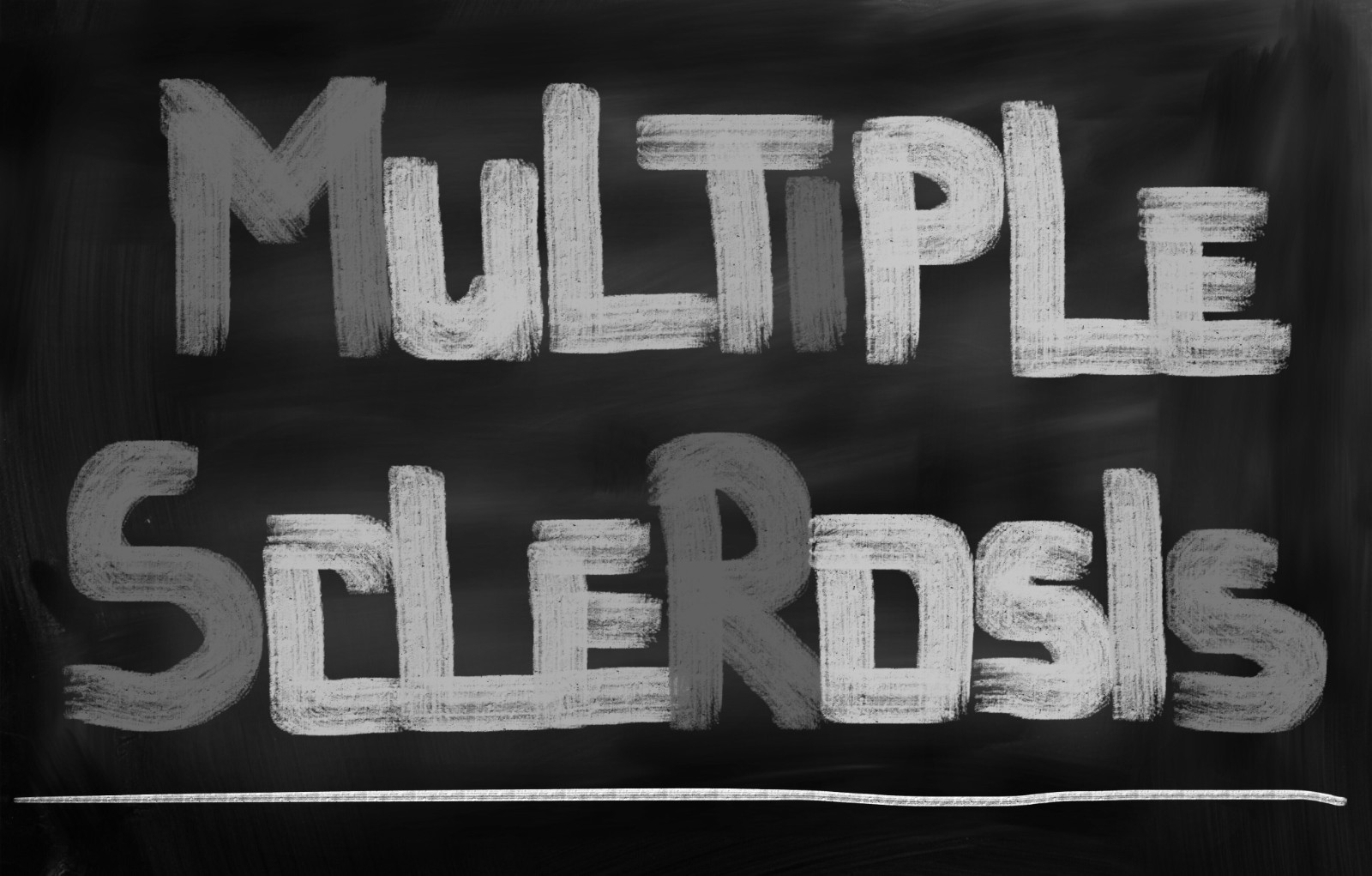 资讯
资讯 罗氏制药榜首 “现金牛” 产品罗可适(奥瑞利珠单抗)在华获批:开启多发性硬化症一年两次治疗新时代
罗氏制药今日(3月31日)宣布,其旗下创新药罗可适®(Ocrevus®,通用名:奥瑞利珠单抗注射液 ocrelizumab injection)正式获得中国国家药品监督管理局批准,每六个月静脉输...
2025-03-31 13:39
 资讯
资讯 三生有幸,医者仁心:三生制药向全体医药工作者致敬!
3月30日是国际医师节,由三生制药公益支持的以“三生有幸,医者仁心”为主题的公益活动,携手20位医生代表,以寄语海报的形式,共同向全体医护人员表达诚挚的祝福与关爱。
2025-03-30 17:38
 资讯
资讯 新版药典自2025年10月1日起实施
3月25日,国家药监局官网发布《国家药监局 国家卫生健康委关于颁布2025年版的公告(2025年第29号)》,2025年版《中国药典》自2025年10月1日起施行。
2025-03-30 17:07


